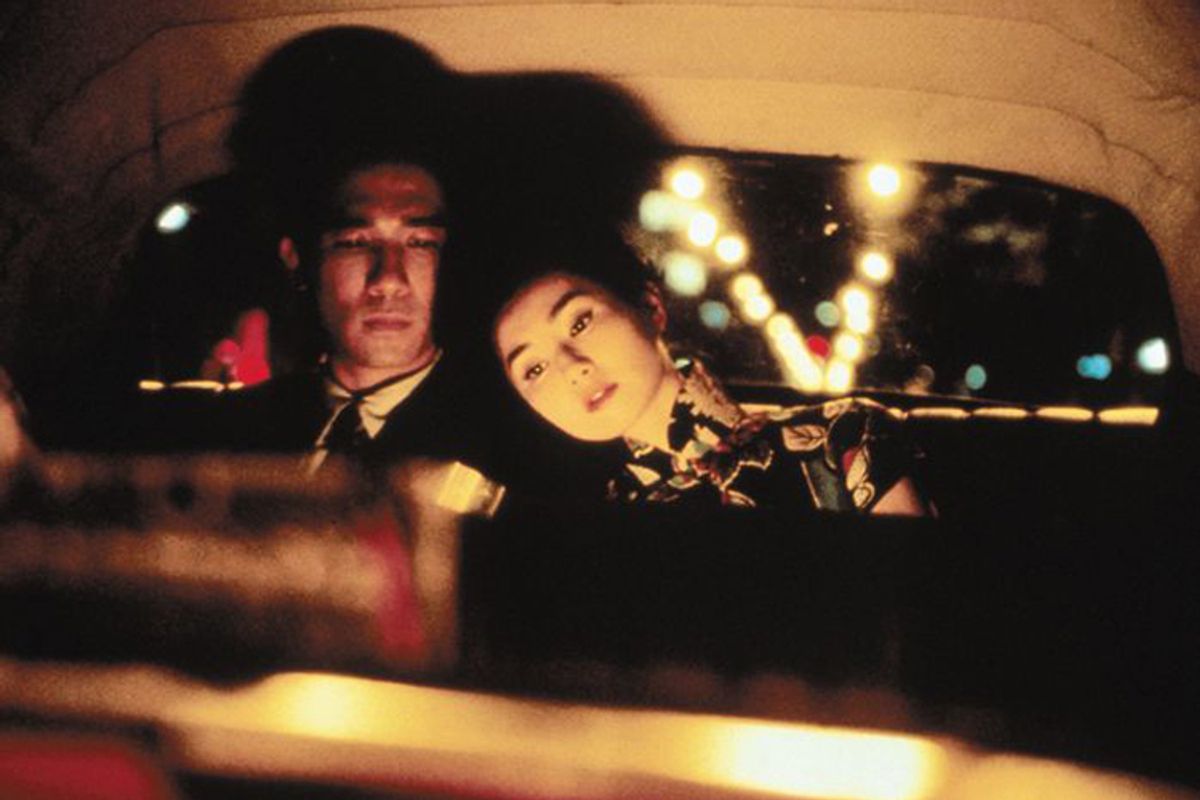Despite what many think of either the encroaching annihilation of the form or its social or economic irrelevance, film criticism remains a noble and deeply necessary vocation. A number of films and filmmakers excited, disturbed or enthralled me over the course of the past 10 years (I have about 126 titles on a preliminary list of my personal favorites). It's hard if not impossible to pick just one, but the movie that exemplifies what the art form is capable of — the sensual intoxication of camera movement, color, editing and the framing of bodies punctuated by an emotional and narrative roundelay of desire, longing and memory — is Wong Kar-wai's "In the Mood for Love." I’ll never forget the first time I saw it, in the balcony of the Théâtre Lumière on the final Saturday at Cannes in May 2000.
I reviewed it for indieWIRE at Cannes. That piece remains one of my favorites because I had very little time, maybe an hour, to gather my thoughts and put it together. In retrospect, the lack of time was the best thing because I just had to put down a volley of words that I hoped captured the intoxicating, though devastating, emotional piece I had just seen. The story of a man (Tony Leung) and woman (Maggie Cheung) who discover the tragic, peculiar way their lives are interconnected, Wong's movie is a great many things, a fugue, constructed as a series of dances where the two eye each other, tenderly, warily, unable to say how they really feel about each other.
Wong is the most Proustian of directors, whose dominant theme is the irretrievability of a lost Eden. Like Jim Jarmusch, Wong is a romantic pessimist whose movies circle around ideas of solitude, loneliness and cultural dislocation. It's a great theme, but also a potentially off-putting one because it is all predicated on silences, body movements and facial inflections. The reaction to the movie, then and today, has been quite polarized. A lot of people were frustrated by the fact that Wong was so severe in what he withheld. I've watched the movie countless times, and I'm still not sure what the coda means. The fact that it hovers and dances around the unknowable, that the movie and its characters remain outside our grasp, is one of the reasons I love it so much. I ended my original review by saying, "In the past Wong Kar-wai created movies so stylized and abstract they formed his own particular reality, a dreamscape that flowed with possibility. With 'In the Mood for Love' Wong breaks our hearts with images, songs and Maggie Cheung's face."
Just thinking about it now, my body shivers. That's what great art does.
This concludes Film Salon's series of posts by special guests writing about their favorite film(s) of the 2000s. To read the entire series, go here.



Shares